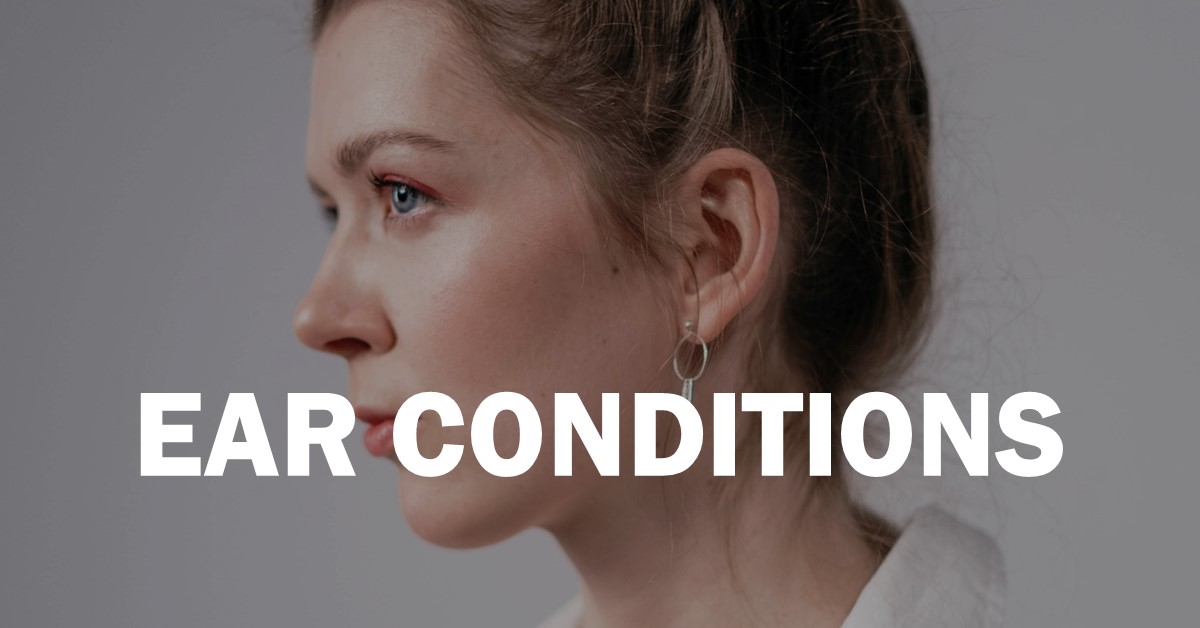Tinnitus
Over 50 million Americans have experienced tinnitus, or ringing in ears, which is the perception of sound without an external source being present.
About one in five people with tinnitus have bothersome tinnitus, which negatively affects their quality of life and/or functional health. Tinnitus may be an intermittent or continuous sound in one or both ears. Its pitch can go from a low roar to a high squeal or whine, or it can have many sounds.
Persistent tinnitus lasts more than six months. Prior to any treatment, it is important to undergo a thorough examination and evaluation by an ENT (ears, nose, and throat) specialist, or otolaryngologist, and an audiologist. Your understanding of tinnitus and its causes will enhance your treatment.
What Are the Symptoms of Tinnitus?
Tinnitus is not a disease per se, but a common symptom, and because it involves the perception of hearing sound or sounds in one or both ears, it is commonly associated with the hearing system. In fact, various parts of the hearing system, including the inner ear, are often responsible for this symptom. At times, it is relatively easy to associate the symptom of tinnitus with specific problems affecting the hearing system; at other times, the connection is less clear.
Common symptoms of tinnitus include:
- Constant high- or low-pitched ringing in ears
- Intermittent or constant roaring in ears
- Pulsation or beating noises in ears
- Associated with or without hearing loss
What Causes Tinnitus?
Most tinnitus is primary tinnitus, where no cause can be identified aside from hearing loss. Secondary tinnitus is associated with a specific underlying cause that may be treatable. Your ENT specialist will help you distinguish whether your tinnitus is primary or secondary.
How We Can Help
After meeting with the Naugatuck Valley ENT team, we will provide recommended treatment for your ear condition or hearing loss that depends. You can contact Naugatuck Valley ENT at (203) 578-4630 to set up an appointment.
Tinnitus may be caused by different parts of the hearing system. The outer ear (pinna and ear canal) may be involved. Excessive ear wax, especially if the wax touches the ear drum, causing pressure and changing how the ear drum vibrates, can result in tinnitus.
Middle ear problems can also cause tinnitus, including middle ear infection (common) and otosclerosis (uncommon), which hardens the tiny ear bones or ossicles. Another rare cause of tinnitus from the middle ear that does not result in hearing loss is muscle spasms in one of the two tiny muscles in the ear. In this case, the tinnitus can be intermittent and sometimes your examiner may also be able to hear the sounds.
Most subjective tinnitus associated with the hearing system originates in the inner ear. Damage and loss of the tiny sensory hair cells in the inner ear (that can be caused by different factors such as noise damage, medications, and age) may also be associated with tinnitus.
One of the preventable causes of tinnitus is excessive noise exposure. In some instances of noise exposure, tinnitus can be noticed even before hearing loss develops, so be careful to take special precautions to protect your ears and hearing in noisy environments.
Medications can also damage inner ear hair cells and cause tinnitus. These include both non-prescription medications such as aspirin and acetaminophen, when taken in high doses, and prescription medication including certain diuretics and antibiotics. As we age, the incidence of tinnitus increases.
Tinnitus may also originate from an abnormality in, or near, the hearing portion of the brain. These include a variety of uncommon disorders such as damage from head trauma, or a benign tumor called “vestibular schwannoma” (acoustic neuroma).
Tinnitus that sounds like your pulse or heartbeat is known as “pulsatile tinnitus.” Infrequently, pulsatile tinnitus may signal the presence of cardiovascular disease, narrowed arteries, or a vascular tumor in your head and neck, or ear. If you are experiencing this type of tinnitus, you should consult a physician as soon as possible for evaluation.
Finally, non-auditory conditions and lifestyle factors can exacerbate tinnitus. Medical conditions such as temporomandibular joint arthralgia (TMJ), depression, anxiety, insomnia, and muscular stress and fatigue may lead to, or exacerbate, tinnitus.
What Are the Treatment Options?
When you are evaluated for tinnitus, the first thing the doctor will do is obtain a complete history and perform a thorough, targeted physical examination. If your tinnitus is one-sided (unilateral), associated with hearing loss, or persistent, a hearing test, or audiogram, should be ordered. There is typically no need for radiologic testing (X-ray, CT scan or MRI scan) unless your tinnitus is pulsatile or associated with uneven, asymmetric hearing loss or neurological abnormalities. Your doctor will determine how bothersome your tinnitus is by asking you certain questions or having you complete a self-assessment questionnaire.
Although there is no one “cure” for tinnitus, there are several options available that can help patients with tinnitus. Because tinnitus is relatively common and not always worrisome, not all patients need an evaluation. If your ENT specialist finds a specific cause for your tinnitus, they may be able to offer specific treatment to eliminate the noise. This may include removing wax or hair from your ear canal, treating middle ear fluid, treating arthritis in the jaw joint, etc. For many patients who have experienced tinnitus for less than six months, its natural course is to improve over time, and most people do not go on to have persistent, bothersome tinnitus.
Some patients with hearing loss and tinnitus have improvement with the use of hearing aids, with or without built-in ear-level maskers. Sound therapies that involve simple things like background music or noise or specialized ear-level maskers may be a reasonable treatment option. The effects of tinnitus on quality of life may also be improved by cognitive behavioral therapy (CBT) counseling, which usually involves a series of weekly sessions led by a trained professional.
Tinnitus can be so bothersome in some patients that it causes depression or anxiety; additionally, in a patient with depression and/or anxiety, it may be very difficult to tolerate tinnitus. Consultation with a psychiatrist or psychologist with treatment directed to the underlying condition can be beneficial.
Routine prescription of medications including antidepressants, anticonvulsants, anxiolytics, or intratympanic injection of medications is not recommended for treating tinnitus without an underlying or associated medical problem that may benefit from such treatment.
Dietary supplements for tinnitus treatment are frequently advertised on the internet, television, and radio, but there is no evidence that supplements such as ginkgo biloba, melatonin, zinc, Lipoflavonoid, and vitamin supplements are beneficial for tinnitus.
Acupuncture may or may not be help your tinnitus; there are not enough quality studies of this type of treatment to make a recommendation. Transcranial magnetic stimulation is a new modality, or therapeutic agent, but its long-term benefits are unproven and cannot be recommended for treating tinnitus at this time.
Tips to lesson the impact of tinnitus:
- Avoid exposure to loud sounds and noises.
- Get your blood pressure checked; if it’s high, get your doctor’s help to control it.
- Exercise daily to improve your circulation.
- Get adequate rest and avoid fatigue.
- Use background music/noise or a sound machine to help dampen or eliminate the tinnitus.
- Use mental techniques to push the perception of tinnitus to the background; the more you think about the tinnitus, the louder it will seem.
- Take steps to reduce stress.
- Reduce or eliminate your caffeine consumption.
What Questions Should I Ask My Doctor?
- Can other people hear the noise in my ears?
- Why is my tinnitus so loud at night?
- Can my child be at risk for tinnitus?
Copyright 2022. American Academy of Otolaryngology–Head and Neck Surgery Foundation. Last reviewed August 2018.
How We Can Help
If you are experiencing hearing loss symptoms, our Audiologists can help you resolve or at least mitigate the issues. Our recommended treatment depends on the underlying cause and severity of your hearing loss.
- Hearing Aids: A hearing aid can mitigate your hearing loss if the damage is in your inner ear.
- Removing Earwax Blockage: This blockage is a reversible cause of hearing loss.
- Cochlear Implants: A cochlear implant bypasses damaged section of your inner ear and directly stimulates the hearing nerve.
- Surgical Procedures: Surgery can be option for hearing loss.
Please contact our office at (203) 578-4630 to make an appointment.



